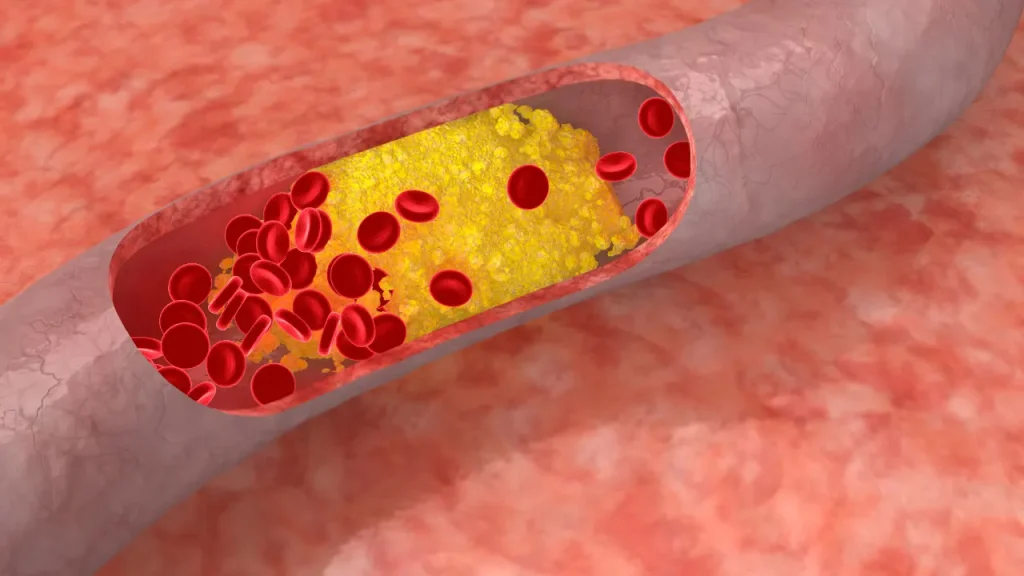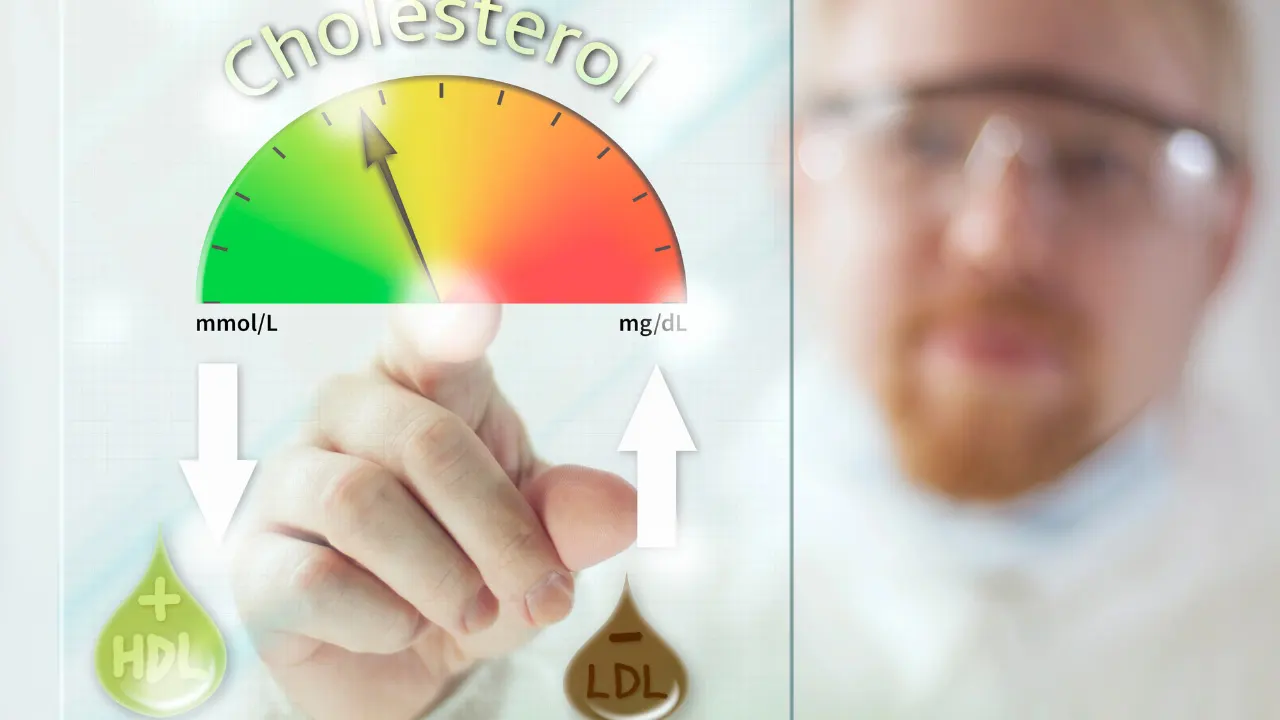Understanding your cholesterol levels is crucial for a heart-conscious lifestyle. Cholesterol, linked to heart disease, significantly impacts cardiovascular health. Beyond familiar terms like LDL and HDL cholesterol, there’s an often-overlooked aspect: the cholesterol ratio. This article delves into the importance of cholesterol ratios and introduces the cholesterol ratio calculator, a powerful wellness tool.
Cholesterol, a critical component of blood, can pose risks when it becomes imbalanced. LDL, also known as “bad” cholesterol, can lead to artery plaque buildup, while HDL, or “good” cholesterol, plays a role in removing excess cholesterol, thereby reducing the risk of plaque formation.
The cholesterol ratio goes beyond individual cholesterol levels. It assesses the balance between protective and harmful cholesterol, offering a comprehensive heart disease risk indicator. Calculating your cholesterol ratio provides insights into your overall cardiovascular health.
A favorable ratio suggests a lower risk, while an unfavorable one calls for lifestyle changes. The cholesterol ratio calculator is a user-friendly tool for proactively managing heart wellness. In the following sections, we will explore how to effectively use a cholesterol ratio calculator, the significance of the ratio, and how omega-3s may enhance heart health.
In today’s healthcare landscape, prevention is paramount. The cholesterol ratio calculator empowers individuals to take control of their heart health.
You May Also Like:
Supplements From the Sea for Heart Health: Fish Oil vs. Krill Oil
What’s Your Choice to Maximize Heart Health: Kori Pure Antarctic Krill Oil or Vitaliv Krill Oil?
Calculate Your Heart Disease Risk With a Cholesterol Ratio Calculator: 5 Ways This Amazing Tool Safeguards Wellness is an original (Health11News) article.
Cholesterol ratio calculator:
Background
Before delving into the cholesterol ratio calculator, it’s essential to grasp the significance of the cholesterol ratio itself. While absolute cholesterol levels offer insights into the amount of cholesterol in your bloodstream, the cholesterol ratio introduces a more nuanced perspective. This ratio doesn’t merely consider the total cholesterol present but, more importantly, the balance between good cholesterol (HDL) and bad cholesterol (LDL).
To comprehend the cholesterol ratio, one must understand the roles of HDL and LDL cholesterol. HDL plays a crucial role in safeguarding your cardiovascular health. It works to transport excess cholesterol away from your arteries and back to the liver for processing and elimination, thereby reducing the risk of plaque buildup.
Conversely, LDL cholesterol has the potential to accumulate in your arteries, forming plaque deposits. These deposits can narrow and harden the arteries, potentially leading to blockages that impede blood flow to the heart.
The cholesterol ratio, expressed as a fraction or a percentage, brings these two cholesterol types into focus. It offers a comprehensive assessment of your cholesterol profile by quantifying the proportion of HDL to LDL cholesterol. This dynamic ratio provides invaluable insights into your heart disease risk, as it accounts for the delicate interplay between protective and harmful cholesterol.
A favorable cholesterol ratio indicates a higher proportion of HDL cholesterol, which is associated with reduced heart disease risk. In contrast, an unfavorable ratio signifies a higher proportion of LDL cholesterol, which may raise concerns about cardiovascular health.
As we proceed, we’ll explore how this cholesterol ratio can serve as a vital indicator of your heart wellness and how the cholesterol ratio calculator becomes an indispensable ally in deciphering this crucial aspect of your overall health.

Cholesterol ratio calculator:
The omega-3 phospholipid connection
Omega-3 fatty acids, often dubbed as heart-healthy superheroes, are integral to promoting cardiovascular wellness. Among the various forms of omega-3s, phospholipids have garnered significant attention for their remarkable benefits. These essential fats not only play a role in lowering triglycerides, a type of fat in the bloodstream associated with heart disease, but they also possess the unique capability to improve the overall cholesterol ratio.
The key differentiator of phospholipid-bound omega-3s lies in their high bioavailability. Unlike other forms of omega-3s, such as triglycerides or ethyl esters, phospholipid-bound omega-3s are structurally similar to the lipids found in our cell membranes. This structural resemblance allows them to be readily absorbed by the body, making them exceptionally effective in supporting heart health.
Krill oil, derived from small marine organisms, is an excellent source of phospholipid-bound omega-3s, making them an ideal addition to your heart health regimen. By incorporating krill oil into your daily routine, you can harness the heart-boosting benefits of omega-3s. Krill oil can provide a convenient and effective way to support your cardiovascular health, ultimately contributing to a more favorable cholesterol ratio.
Cholesterol ratio calculator:
A user-friendly tool
Now, let’s turn our attention to the star of the show—the cholesterol ratio calculator. This remarkable online tool is your key to demystifying the complexities of your cholesterol levels, offering a user-friendly and accessible way to assess your cardiovascular health.
One of the primary advantages of the cholesterol ratio calculator is its simplicity. It eliminates the guesswork that often surrounds cholesterol interpretation, allowing individuals to gain valuable insights into their heart disease risk with ease. To utilize this tool effectively, you need to input two key values: your HDL (high-density lipoprotein) cholesterol and LDL (low-density lipoprotein) cholesterol levels. These values are typically obtained through a routine blood test, a common component of regular health check-ups.
Upon entering your HDL and LDL cholesterol values into the calculator, it swiftly and accurately performs its calculations. Within moments, it calculates your cholesterol ratio, providing you with a clear and comprehensible snapshot of your cardiovascular well-being. This ratio is expressed as a fraction or a percentage, enabling you to gauge the balance between your “good” and “bad” cholesterol.
What sets the cholesterol ratio apart from merely assessing absolute cholesterol levels is its ability to provide a more holistic view of your heart disease risk. While absolute values are informative, they may not reveal the complete picture. The cholesterol ratio accounts for the delicate interplay between HDL, which is protective, and LDL, which can be harmful. This dynamic assessment offers insights into how these cholesterol types interact in your body, ultimately influencing your risk of developing heart disease.
In the subsequent sections, we will explore in greater detail why the cholesterol ratio matters and how it can guide you in making informed decisions about your heart health. Additionally, we’ll examine how this essential tool complements your efforts to maintain a heart-conscious lifestyle, potentially with the assistance of omega-3s. Together, these elements contribute to a comprehensive approach to safeguarding your cardiovascular wellness.

Cholesterol ratio calculator:
5 ways it supports wellness
Understanding the significance of the cholesterol ratio is vital for safeguarding your cardiovascular health. Here are five compelling reasons why this remarkable tool is crucial:
1. Early Detection of Risk: The cholesterol ratio goes beyond individual cholesterol values, allowing for the early detection of heart disease risk. It helps to identify issues that might be missed when focusing solely on these values. Early detection enables timely intervention and lifestyle changes, potentially preventing heart-related complications.
2. Tailored Treatment Plans: A high cholesterol ratio can prompt healthcare providers to recommend tailored interventions. These may include dietary adjustments, exercise regimens, or the incorporation of heart-healthy supplements like omega-3s. Such personalized approaches can yield more effective outcomes in managing and reducing heart disease risk.
3. Monitoring Progress: As you embark on lifestyle changes or introduce supplements like omega-3s, the cholesterol ratio calculator becomes an invaluable tool for tracking your progress. Observing improvements in your ratio can serve as a motivating and reassuring indicator of your commitment to heart wellness.
4. Holistic Heart Health: The cholesterol ratio takes into account both HDL and LDL cholesterol, providing a more comprehensive view of your heart health. It encourages a holistic approach by highlighting the balance between protective HDL cholesterol and potentially harmful LDL cholesterol. This encourages you to focus on improving your overall cardiovascular profile.
5. Informed Decision-Making: Armed with knowledge of your cholesterol ratio, you gain the power to make informed decisions about your health. This knowledge empowers you to take proactive steps, reducing your risk of heart disease through lifestyle modifications, dietary choices, and other health-related decisions.
To make the most of this indispensable tool, using the cholesterol ratio calculator is a straightforward process:
- Obtain Your Recent Cholesterol Test Results: Begin by gathering your latest cholesterol test results, including the values for both HDL and LDL cholesterol.
- Input Values into the Calculator: Next, input these cholesterol values into the calculator.
- Instant Calculation: The calculator will instantly compute your cholesterol ratio, providing you with a clear and concise representation of your cardiovascular well-being.
- Interpretation Based on Guidelines: Interpret the results in accordance with the provided guidelines. These guidelines will help you understand your heart disease risk relative to your cholesterol ratio.
It’s crucial to remember that while the cholesterol ratio calculator is a useful tool, it should be used in conjunction with consultation with a healthcare provider. They can provide you with a comprehensive understanding of your heart health and offer tailored advice based on your unique health profile.
Cholesterol ratio calculator:
Introducing Kori Krill Oil
When it comes to prioritizing heart health and overall wellness, the choice of an omega-3 supplement can make a significant difference. Kori Krill Oil Softgels 1200 mg stands out as an exceptional product, serving as a high-quality source of krill oil omega-3s. Let’s explore the remarkable benefits that set Kori Krill Oil apart in the world of nutritional supplements.
One of the standout features of Kori Krill Oil is its unique phospholipid composition. Unlike other omega-3 sources, such as fish oil, these phospholipids are more readily absorbed by the body. This enhanced absorption means that you can unlock the maximum benefits of omega-3s with smaller, more manageable doses. As a result, Kori Krill Oil Krill Oil Softgels 1200 mg delivers a potent punch of heart-healthy nutrients, promoting optimal cardiovascular well-being.
Beyond its nutritional prowess, Kori Krill Oil takes environmental responsibility seriously. Kori Krill Oil sources its omega-3s from pure Antarctic krill thriving in the pristine waters of Antarctica. Kori Krill Oil’s sourcing is guided by meticulous regulation to protect the delicate Antarctic ecosystem. By choosing Kori Krill Oil, you not only support your own health but also contribute to the preservation of this unique environment.
For those seeking a reliable, environmentally conscious, and highly effective source of phospholipid-bound omega-3s, Kori Krill Oil Krill Oil Softgels 1200 mg emerges as a top choice. These softgels encapsulate the essence of heart-boosting nutrition, offering enhanced absorption, protection against oxidation, and a commitment to sustainable sourcing.

Cholesterol ratio calculator:
Final thoughts
In conclusion, comprehending and vigilantly monitoring your cholesterol ratio represent crucial steps in ensuring the well-being of your heart. The cholesterol ratio calculator emerges as a powerful ally, affording you the ability to proactively manage your cardiovascular health. Moreover, the inclusion of high-quality omega-3s in your daily regimen can further fortify your commitment to heart wellness.
Your heart health is unequivocally within your control. Through regular assessment of your cholesterol ratio and the prudent utilization of informative insights, you possess the means to mitigate your risk of heart disease. By making sound, health-conscious decisions, you pave the way for a future not only marked by reduced cardiovascular risks but also by a life imbued with vitality and well-being. Your heart’s longevity and vigor are worth every investment in knowledge, lifestyle adjustments, and heart-healthy choices.
In this journey toward a healthier heart, the cholesterol ratio calculator serves as your compass, offering precise guidance. The integration of heart-healthy supplements, such as omega-3s, provides the necessary support for your heart’s vitality. Armed with these tools and the knowledge you’ve acquired, you stand equipped to make choices that will lead to a happier, healthier, and more heart-secure life. Remember, your heart’s harmony is in your hands, and the choices you make today resonate in the rhythm of a heart-filled tomorrow.

Further Reading:
Circulation. Dietary Cholesterol and Cardiovascular Risk: A Science Advisory From the American Heart Association
JAMA Cardiology. A New Equation for Calculation of Low-Density Lipoprotein Cholesterol in Patients With Normolipidemia and/or Hypertriglyceridemia
Nutrients. Dietary Cholesterol and the Lack of Evidence in Cardiovascular Disease
StatPearls. Physiology, Cholesterol
Vascular Health and Risk Management. Lipoprotein ratios: Physiological significance and clinical usefulness in cardiovascular prevention
Important Note: The information contained in this article is for general informational purposes only, and should not be construed as health or medical advice, nor is it intended to diagnose, prevent, treat, or cure any disease or health condition. Before embarking on any diet, fitness regimen, or program of nutritional supplementation, it is advisable to consult your healthcare professional in order to determine its safety and probable efficacy in terms of your individual state of health.
Regarding Nutritional Supplements Or Other Non-Prescription Health Products: If any nutritional supplements or other non-prescription health products are mentioned in the foregoing article, any claims or statements made about them have not been evaluated by the U.S. Food and Drug Administration, and such nutritional supplements or other health products are not intended to diagnose, treat, cure, or prevent any disease.


